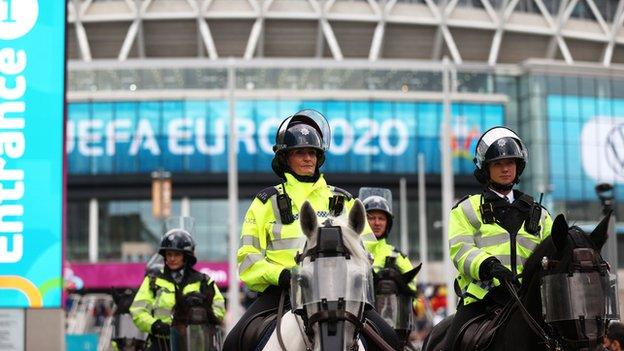Drug-related offenders in football to be given stadium bans
- Published

Incidents were reported at more than half of all matches (53%) - 1,609 of the 3,019 matches played last season
People caught in possession of or supplying class A drugs in connection with football will be banned from games for up to 10 years.
The changes to the law that were announced by the UK Government in May will come into force next week.
Policing minister Chris Philp said drugs "fuelled some of the shameful behaviour we have seen at games".
The ban will forbid them from attending games for three to 10 years, alongside being given a criminal conviction.
There were 2,198 football-related arrests last season, the highest number since the 2013-14 season, according to Home Office figures.
Around 70% of those fans arrested last season were aged between 18-30 and there were more than 140 arrests for drug offences at matches.
A report by Baroness Casey into violence at the Euro 2020 final between England and Italy last year also found "ticketless, drunken and drugged-up thugs" could have caused death as they stormed Wembley.
"Using and dealing drugs is neither safe nor victimless and has no place in society or football," said Philp.
"That is why we have taken action to make sure anyone who takes or deals drugs at football matches will be prevented from attending games and threatening the safety of the majority of fans, including children, who just want to enjoy the game."
Football Policing Lead chief constable Mark Roberts added: "Drugs and alcohol continue to be persistent drivers of poor behaviour in football, and wider society, and this is a positive step in tackling the problem."

Our coverage of your Premier League club is bigger and better than ever before - follow your team and sign up for notifications in the BBC Sport app to make sure you never miss a moment
